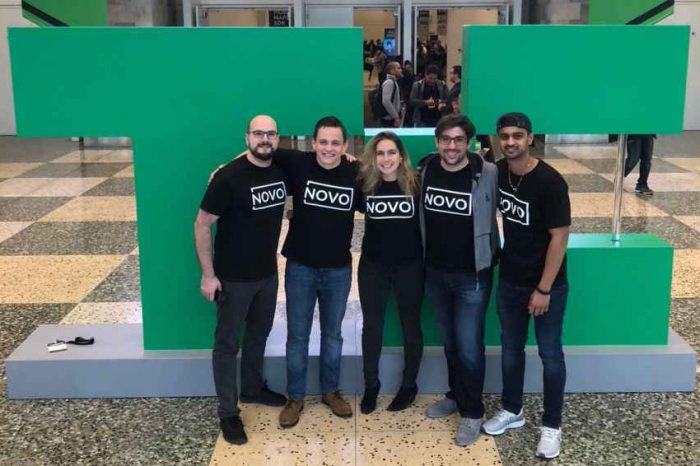Women’s health startup NextGen Jane secures $9 million in series A to enable earlier diagnosis of reproductive disorders

NextGen Jane (Jane), a diagnostic startup focused on developing tests based off a patented tampon collection technology, has raised $9M in a Series A funding round to further advance its scientific data set in select reproductive health areas. The round was led by Material Impact, along with Access Industries, Viking Global Investors, Liminal Ventures, and several notable Angels. Jane is planning for commercialization of its product sometime in year 2020.
NextGen Jane was founded in 2014 by Ridhi Tariyal. It’s a diagnostic startup and data-driven women’s health company offering a woman insight into her reproductive health through a smart tampon system to track biological changes predictive of disease. It’s focused on developing tests based off a patented tampon collection technology. Jane’s technology platform allows users to collect menstrual and cervicovaginal samples with an everyday household product, preserve nucleic acids and other analytes important for disease detection and ship them off to a lab for in-depth sequencing analysis and disease detection.
The NextGen Jane system allows for superior preservation of DNA and RNA of cells from the endometrium, cervix, fallopian tubes and ovaries. Jane’s mission is to transform biological signals to digital diagnoses to empower the individual with early detection of disease, and move the locus of power and health management from the clinic to the consumer.
“Menstrual effluence acts as a natural biopsy of the female reproductive tract, enabling unprecedented access to tissues for diagnosing diseases,” says Ridhi Tariyal, co-founder and CEO of NextGen Jane.
NextGen Jane (Jane) is a data-driven health company changing the way women and people who menstruate engage with and access healthcare. The company’s smart tampon platform allows users to conveniently mail in cells from the reproductive tract that are shed during menstruation. By developing genomic classifiers for specific disease states, Jane hopes to enable earlier diagnosis of devastating reproductive disorders which can take up to a decade to identify today.
“At Material Impact we look for groundbreaking materials-based technologies that have the capacity to democratize access to the resources we need most,” said Adam Sharkawy, Founder & Managing Partner of Material Impact and a former life sciences healthcare executive. “The global women’s health market is $36.5 billion and growing, but an overwhelming number of women don’t have access to the care they need, even in established markets like the US, where half of the country’s over 3,000 counties lack any practicing OB-GYN. Jane’s disruptive technology platform replaces in-clinic, invasive diagnostic procedures with an elegant and simple solution, paving the way for women everywhere to manage their health proactively on their own turf and on their own terms.”
Tariyal emphasizes, “We are excited to be partnering with Material Impact to bring to market a better way to manage health. Decoupling sample collection from the clinic is a simple but effective way to expand access to care for many underserved populations. Access to care in the US and globally is increasingly influenced by geography and wealth. For our part, Jane is addressing the looming resource crisis in medicine by creating affordable solutions that separate care from brick and mortar settings and truly enable individualized, preventative care.”
“One in five Americans live in Primary Care Deserts, and a national physician shortage makes it impossible to catch up,” said Katie Adams, Head of Community Development at the Primary Care Research Institute sponsored by the MARCOM Institute, an organization committed to democratizing access to services like healthcare and education in vulnerable communities. “At PCRI we work to make the healthy option the easy option for every community locally and globally. NextGen Jane provides a way for women in underserved communities to receive diagnostic testing without having to visit a clinic! This is a game changer for diverse populations in Gyno Desert areas like California’s San Joaquin Valley.”

